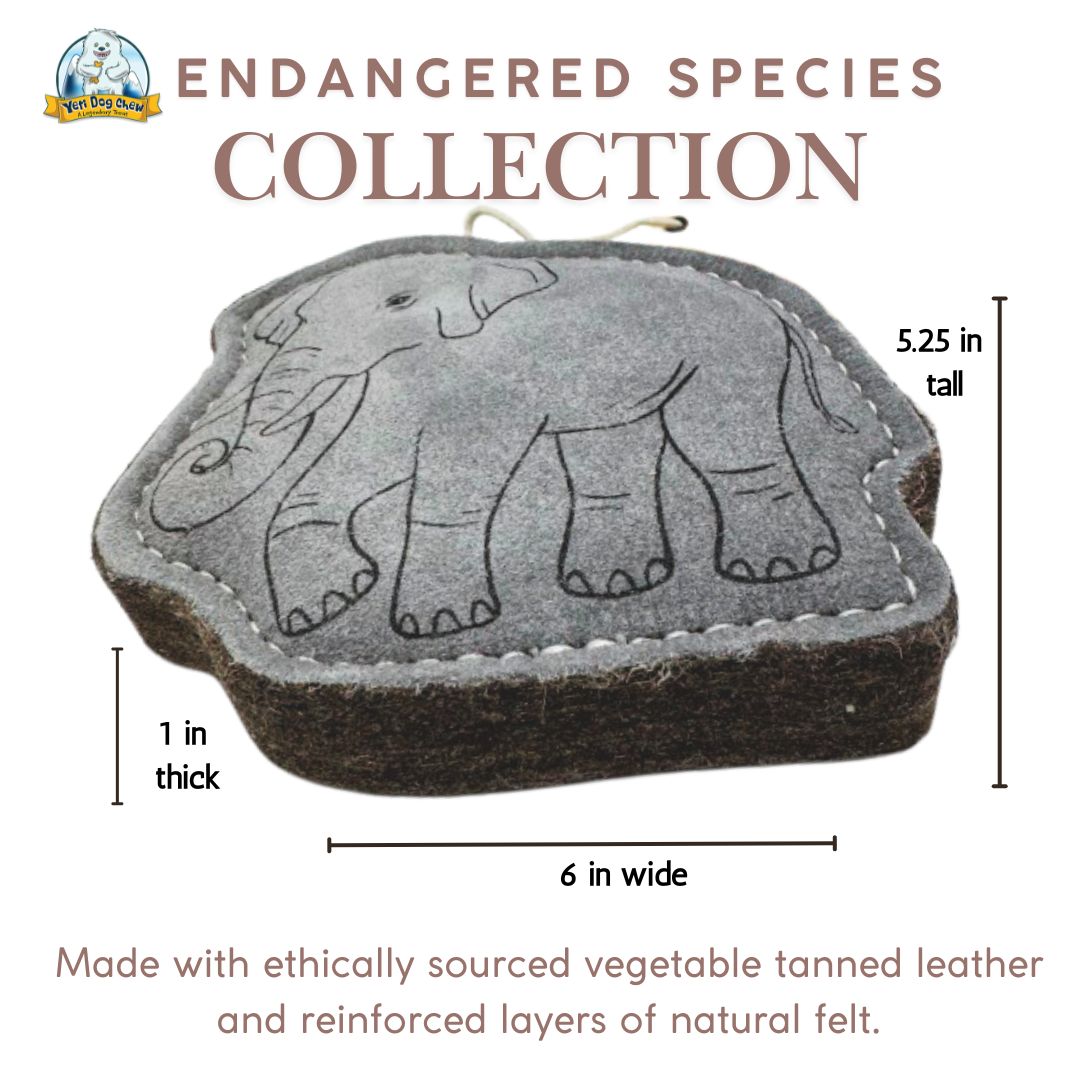Leather Toys
All Natural
Long Lasting
Non-Staining
No odor
$16.49
Chew Size:
Size Chart
Yeti
Leopard
Rhino
Elephant
Panda
Dolphin
Quantity:
Choose a Plan:
One-time purchase
Subscribe and Save
Add new text here
Free Shipping across USA above $25
30-Day Refund Guarantee
Always supervise your pet when introducing new toys and treats.
FREE

Get a Free Biscotti worth $12.10
Receive a pack of FREE Biscotti with all orders over $46.99. Automatically added to your cart.
Endangered Species Collection
Yeti Corporation is proud to announce the launch of our Premium Leather Dog Toys collection. The animal shapes we are launching represent a variety of endangered animals that are native to Nepal.
We have partnered with several conservation organizations in Nepal that have been working tirelessly to protect these beautiful animals. We are continuing to build more partnerships over time. A portion of the profit from your purchase will go towards supporting these vital organizations. Contact us directly should you need to learn more about our partners.

Red Panda
Red Panda Network is committed to the conservation of wild red pandas and their habitat through the education and empowerment of local communities. We envision secure, viable populations of wild red panda thriving throughout their historic range. Preservation of this species and its habitat benefits the region and, as a result, it is valued and protected by all.

Upper Karnali Landscape Initiative
UKALI aims at strengthening community-led biodiversity conservation in the upper Karnali Landscape of Nepal, through scientific research, education and outreach, capacity building, and livelihood diversification aiming at building resilient and self-reliant mountain communities.
The Upper Karnali Landscape is the largest continuous non-protected area in Nepal, covering an area of about 6000 sq. km. It is remote and rich in biodiversity, providing an important basis for the rural economy. Agriculture is subsistence-based and supported by livestock husbandry since only 1% of the total land is suitable for farming. As a result, local communities are highly dependent on biodiversity for their livelihoods and income generation.



